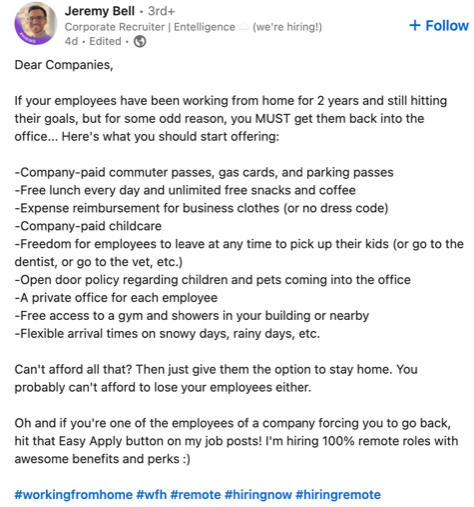The Ampersand March 2022
Having Your Brussels Sprouts, and Eating Them Too
By Adam Pekarsky

Dear Friends and Colleagues,
In one of the more unforgettable episodes of The Twilight Zone — “Time Enough at Last” — Bank Teller and insatiable bookworm, Henry Bemis, emerges from the blissful solitude of his underground bank vault, where he could read uninterrupted at lunch-hour and without the incessant nagging of those around him, to discover that the world above ground had been destroyed by an H-Bomb.

His initial despair at facing the prospect of a lifetime alone on earth soon gives way to unbridled joy as he stumbles upon the ruins of the city’s library, with much of its vast collection intact. Excitedly, he realizes he is now free to read all the books he could ever dream of reading, with the time and solitude to do so without disruption. As Henry eagerly sorts and stacks the books that he looks forward to reading in the months and years ahead, he trips and shatters his thick reading glasses, without which he is virtually blind. The show ends with Henry, alone, surrounded by books he can now never read.
Which brings us to our own emergence from the cellar of our Covid isolation and our modern-day walkabout in a post-pandemic world forever altered. A world both full of possibility – as we embrace and adopt some of the unforeseen virtues Covid bestowed upon us — and peril lest we trip and shatter our proverbial spectacles. And, oh, what a spectacle it has been.
In this piece, we hope to help you navigate this new world, if only insofar as it pertains to the workplace, the altered expectations of employers and employees and to catch you up on the things you may have missed while down in the vault these past two years.
The Ampersand Unplugged
The Ampersand podcast explores issues that impact our community, businesses of all shapes and sizes and challenges impacting human capital and the human condition.
The Ampersand Delivered
Subscribe to The Ampersand and receive instant access to thought provoking articles on the human condition, the motivators & deterrents, the reason some excel while others fail, and the dirty little secret that the bottom 90% of the class usually do better than the top 10%. With over 11,000 subscribers and 175 posts and counting this is one newsletter you won’t be able to delete from your inbox.
It’s like Brussels sprouts; boil them and force me to eat them under threat of no dessert? No way. Soak them in olive oil, crisp them in the oven, load them with salt and pepper and drown them in maple syrup? Way. If you want your people back, don’t take attendance or track their key fob swipes or force them to dress up if they don’t need to. That is the boiled Brussels sprout of office culture. Instead, offer them vestiges of their WFH life. More flexibility, perhaps a couple days a week at home, more willingness to participate in meetings virtually, less shaming when someone says they’re under the weather, more trust that they’re actually working when home, less drive-by’s and bed-checks, more pets and kids at work, music and foosball in the office, mid-day runs by the river and more wine in the fridge. Figure out what they like about being at home and try, as best you can, to re-create it at work.
Some, of course, are taking it too far. Exhibit “A”? I recently stumbled upon this LinkedIn post:

What? Do these people not pay for groceries? It’s not a free-for-all. There are still rules and expectations that an employer is more than entitled to ask of those it employs. It’s just the line has moved, and it is harder to spot. To again channel Henry Bemis, it’s blurry. Yet the thrust of Mr. Bell’s point is important. The Great Resignation is real, and employees will vote with their feet if they are not suitably persuaded as to the line’s placement.
“People are waking up to the value of living lives that allow them to connect with themselves and nurture their well-being and resilience. They’re waking up from the collective delusion that burnout is the price we have to pay for success. Companies that realize this will be less likely to be capsized by the great wave of resignations. Those that don’t may be in for a not-so-great awakening.”
-Arianna Huffington, Founder & CEO at Thrive Global,
The “Great Resignation” Is a Great Cultural Shift
As Beverley McLachlin, former Chief Justice of the Supreme Court of Canada, pointed out in this brilliant op-ed about the frailty of freedom: “Our governments must draw the difficult lines that mark the limits of freedom in a particular situation….But governments are not free agents. They are accountable. Accountable to the people, who can vote them out at the next election if they get the line-drawing wrong.”
Employers, too, draw lines and are similarly held accountable. Get it just wrong, mandate the message rather than massage it, roll-out its rationale with a blunt instrument instead of persuasive appeal and they, too, will face the consequences. Employees, though, must equally realize that no one is irreplaceable, that pendulums swing back and forth and back again. While it may be an employee’s market right now, that won’t last forever.
Beyond wine and jeans and foosball tables, there’s a more existential reason to suggest your people come back. And, no, it’s not about productivity. It has been well documented that productivity went up during the WFH era. And, no, it’s not about culture erosion, though that point is more debatable. An indisputable area of concern for both employer and employee is knowledge transfer. I fear there will be a knowledge clot that will work its way to the brain of many organizations; a sort of air-pocket of two plus years of institutional memory and mentorship that will impact this Covid cohort for the rest of its career.
The ‘coffee maker collisions’; those happenstance mentoring moments between a superior and subordinate simply aren’t happening. And those interactions are in the best interests of all involved. The young analyst who isn’t in the right place at the right time to meet that VP and be brought into the Big Project; that VP who isn’t able to ask the name of her young charge while riding the elevator, perhaps a future star who might just have turned into her successor. The inability to pass down, through office osmosis, the unwritten rules of the road, the Marauder’s Map of workplace politics, that’s where the rubber hits the road.
Or, more appropriately, the spectacles hit the sidewalk.
Regards,
Adam
To enable comments sign up for a Disqus account and enter your Disqus shortname in the Articulate node settings.

